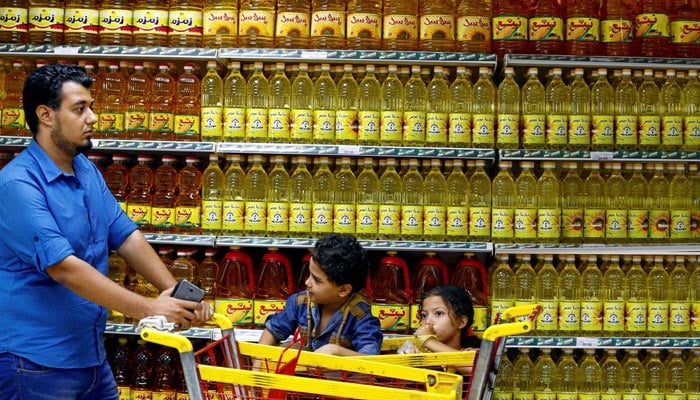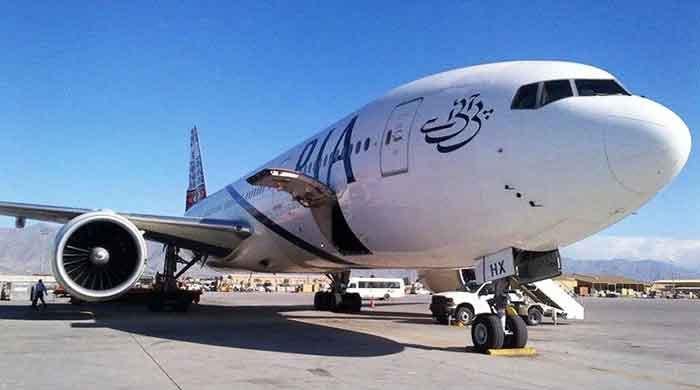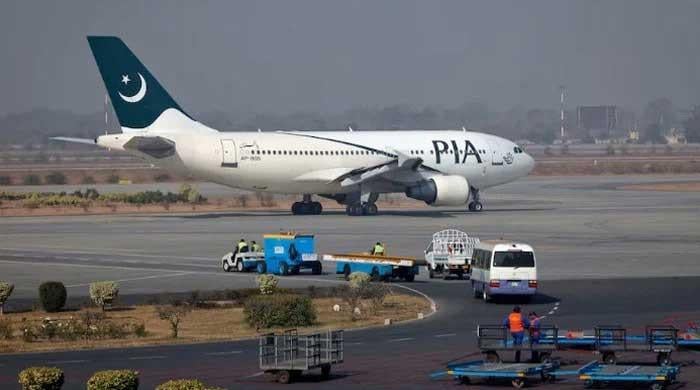Pakistan to receive edible oil shipment from Indonesia: PM Shehbaz
10 ships loaded with edible oil will reach Pakistan within two weeks from Indonesia and Malaysia, PM Office reveals
June 14, 2022

- 10 ships loaded with edible oil will reach Pakistan within two weeks period from Indonesia, Malaysia.
- The first ship carrying 30 metric tonnes of edible oil will depart for Pakistan today.
- Analyst says this move will "negatively affect" rupee-dollar parity, current account balance.
ISLAMABAD: Prime Minister Shehbaz Sharif Tuesday announced that Indonesia will supply edible oil to Pakistan immediately in order to meet the rising demand for the commodity.
According to a statement released by the Prime Ministers’ Office, the premier spoke to the Indonesian President Joko Widod in this regard. Meanwhile, under the direction of PM Shehbaz, a Pakistani delegation visited Jakarta to discuss matters of mutual interest with the government of the island nation.
The notification further mentioned that 10 ships loaded with edible oil will reach Pakistan within two weeks period from Indonesia and Malaysia. Oil worth 250,000 metric tonnes is being imported from Indonesia after Minister for Industries and Production Murtaza Mehmood settled all matters related to the import of oil.
The first ship carrying 30 metric tonnes of edible oil will depart for Pakistan today.
Commenting on the development, Arif Habib Commodities Managing Director and CEO Ahsan Mehanti said that the price of edible oil — particularly palm oil — increased three-fold since the end of PML-N's tenure.
He further added that the decision will impact the import will which is expected to increase significantly. "This will also negatively affect the rupee-dollar parity and the current account balance — which is already widening," he maintained.
The analyst, while commenting on the need for this decision, said that the move will help the government cater to the demands of the people; however, Pakistan needs to focus on local production.
Mehanti said that the shortage of edible oil was seen because of the global crisis due to tensions between Russia and Ukraine.
He also mentioned that in the next fiscal year impact worth $3-4 billion will be seen on the import bill.
Oil export ban
On April 28, Indonesia halted shipments of crude palm oil and some derivative products to try to tame soaring prices of domestic cooking oil, surprising markets that were already rattled by earlier government intervention measures.
President Widodo said that the supply of bulk cooking oil had reached a level greater than needed.
“In several regions, I know prices of cooking oil were still relatively high, but I believe in coming weeks they will be more affordable,” Widodo said in a video statement.
Industry groups had warned that the palm oil sector could grind to a halt in the coming weeks if the export ban were to remain in place.
Palm oil inches higher as Indonesia’s export ban prolongs
The export ban sent soybean oil prices soaring to a record high amid heightened concerns about already depleted global supplies of alternative vegetable oils.
Indonesia’s export ban was designed to bring down prices in the country and limit shortages, according to authorities.
On May 19, Indonesia lifted its three-week-old palm oil export ban due to improvements in its domestic cooking oil supply, its president said, a move applauded by farmers amid mounting calls for its removal.










